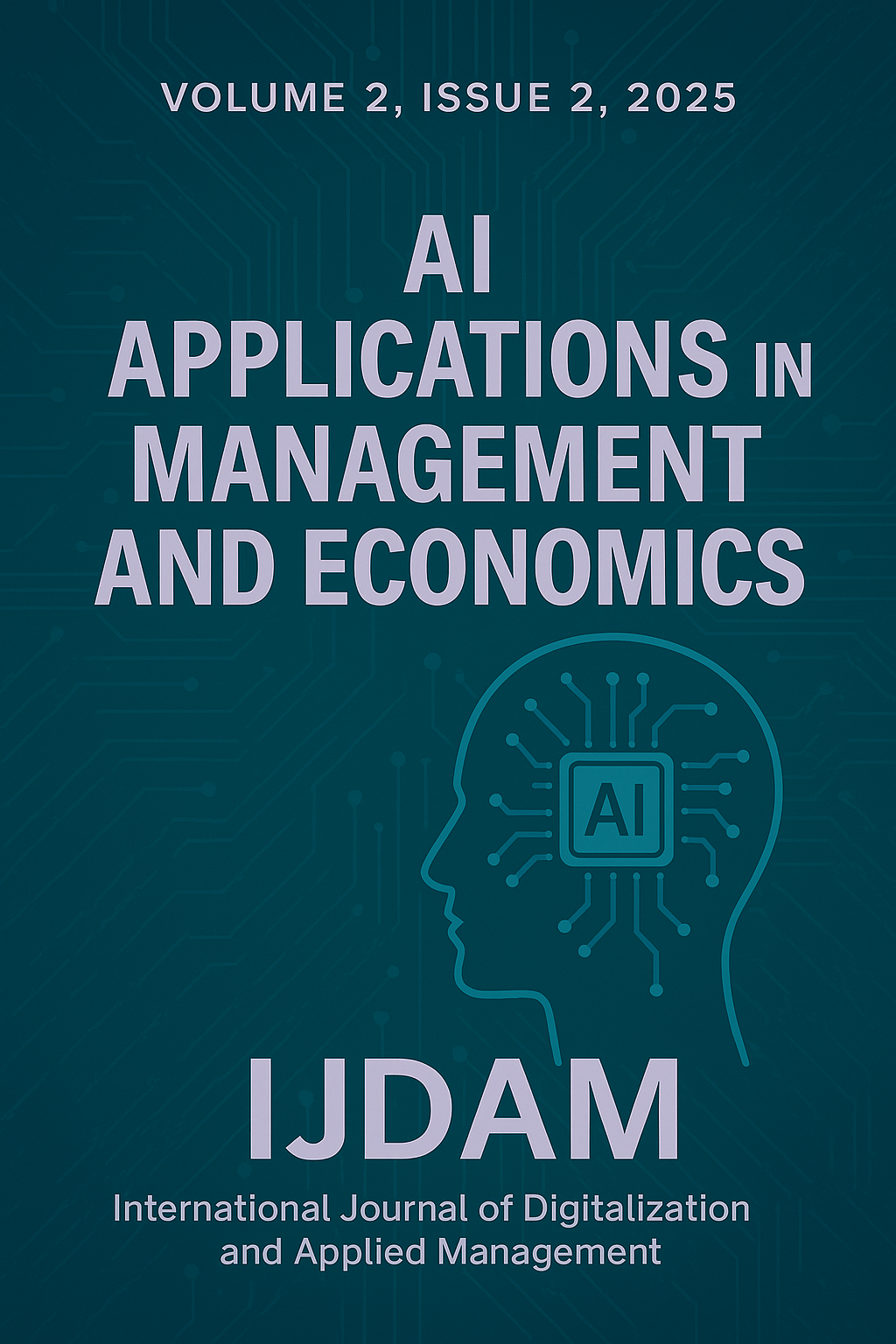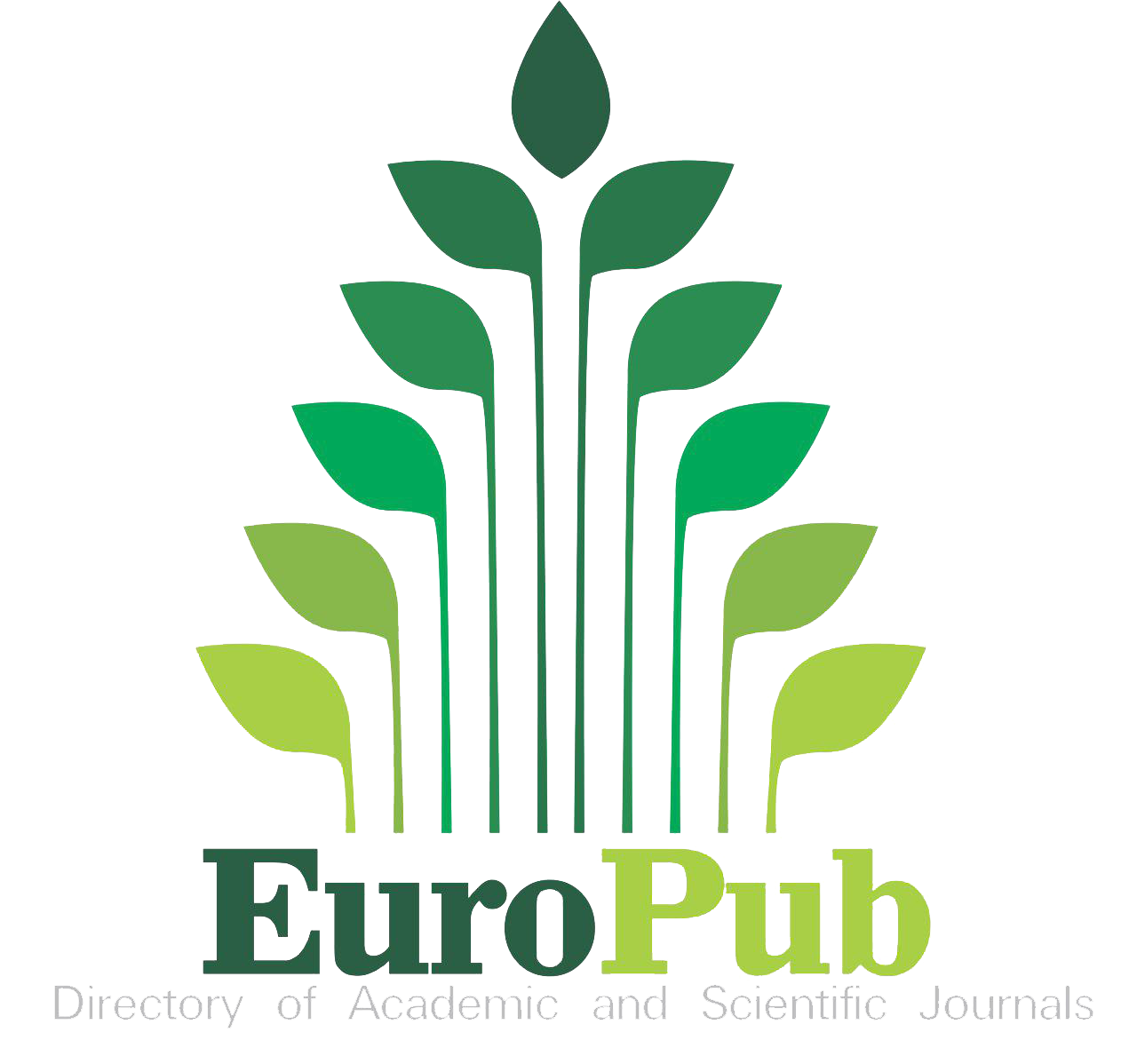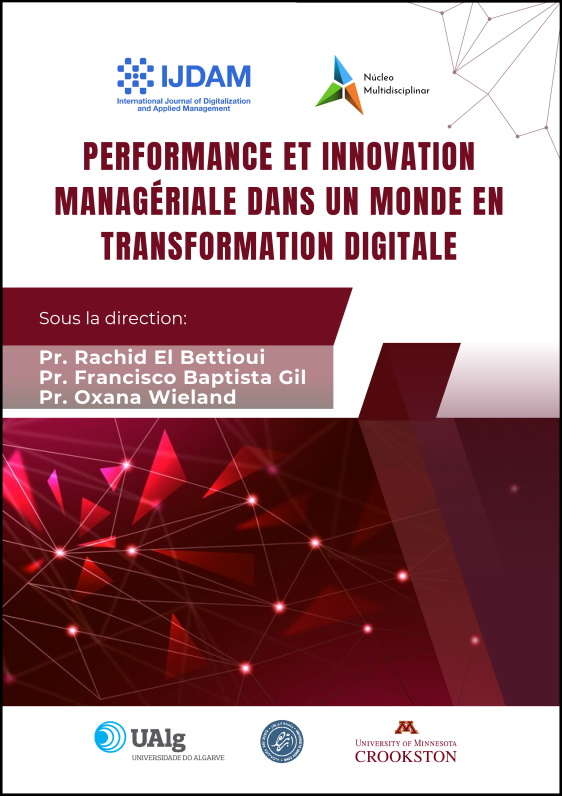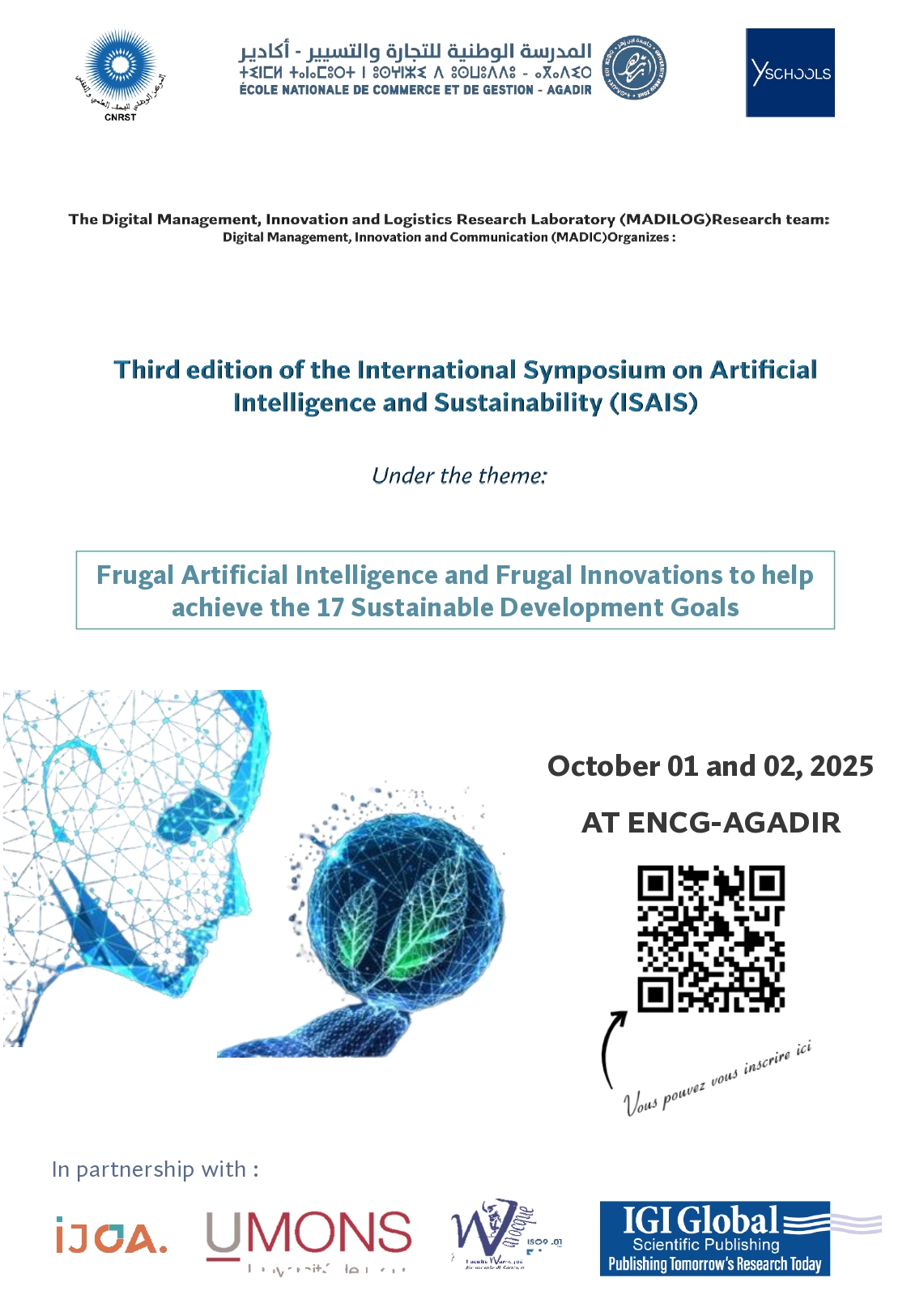Repensando a adoção da inteligência artificial no ensino superior: um estudo bibliométrico sobre barreiras, questões éticas e desafios de governança.
a bibliometric study of barriers, ethical issues, and governance challenges
DOI:
https://doi.org/10.23882/ijdam.25216Palavras-chave:
Inteligência Artificial, Ensino Superior, Análise Bibliométrica, Governança, ÉticaResumo
Cet article présente une analyse bibliométrique des activités récentes sur l'intégration de l'intelligence artificielle (IA) dans l'humanité supérieure, en particulier sur les obstacles rencontrés, sur les dilemmes économiques posés et sur les questions de gouvernance associées. L'étude de base comprend un corpus de 803 articles révisés par des paires d'extraits de la base de données Web of Science pour la période 2020 à 2024. L'analyse a été réalisée en tant que ferramentas VOSviewer et Biblioshiny, qui s'identifie comme étant les discussions les plus fréquentes, les principaux collaborateurs, comme les réseaux de collaboration mondiale et les clusters thématiques structurels.
Les résultats sont un point fort pour nos modèles d'éducation technologique (en particulier UTAUT et TAM) et pour l'intégration pédagogique de l'IA. Cependant, diverses lacunes critiques permanentes, en particulier en ce qui concernent la protection des données personnelles, sont algorithmiques, liées aux structures réglementaires robustes et à la sous-représentation des pays dans le développement des publications scientifiques et des réseaux de collaboration. académique. L'étude a pour importance de renforcer les mécanismes de gouvernance éthique, de développer des politiques inclusives pour améliorer le développement de l'IA dans le monde et promouvoir les sciences scientifiques les plus équilibrées au niveau international.
Referências
Almenar, R., Tricco, G., Ayers, K., Ben Moussa, R., Graham, T., Iyiola, S., Lee, S., Nemcova, T., Joshua Opota, A., Sharma, T., Toh, R., & Yuan, J. (2024). The Protection of AI-Based Space Systems from a Data-Driven Governance Perspective. IISL Colloquium on the Law of Outer Space, 238‑263. https://doi.org/10.52202/078384-0024
Aria, M., & Cuccurullo, C. (2017). bibliometrix : An R-tool for comprehensive science mapping analysis. Journal of Informetrics, 11(4), 959 975. https://doi.org/10.1016/j.joi.2017.08.007
Benatiya Andaloussi, M. (2024). A Bibliometric Literature Review of Digital Supply Chain : Trends, Insights, and Future Directions. Sage Open, 14(2), 21582440241240340. https://doi.org/10.1177/21582440241240340
Bouhazzama, M., & Guenaoui, A. (s. d.). THE MOROCCAN WOMEN’S COOPERATIVE IN RESPONSE TO LASTING IMPACTS: SOCIAL COHESION, SOLIDARITY AND INCLUSION.
Chan, C., & Colloton, T. (2024). Generative AI in Higher Education : The ChatGPT Effect. https://doi.org/10.4324/9781003459026
Chan, C. K. Y., & Hu, W. (2023). Students’ voices on generative AI : Perceptions, benefits, and challenges in higher education. International Journal of Educational Technology in Higher Education, 20(1), 43. https://doi.org/10.1186/s41239-023-00411-8
Cobo, M. j., López-Herrera, A. g., Herrera-Viedma, E., & Herrera, F. (2011). Science mapping software tools : Review, analysis, and cooperative study among tools. Journal of the American Society for Information Science and Technology, 62(7), 1382 1402. https://doi.org/10.1002/asi.21525
Donthu, N., Kumar, S., Mukherjee, D., Pandey, N., & Lim, W. M. (2021). How to conduct a bibliometric analysis : An overview and guidelines. Journal of Business Research, 133, 285 296. https://doi.org/10.1016/j.jbusres.2021.04.070
Dwivedi, Y. K., Hughes, L., Ismagilova, E., Aarts, G., Coombs, C., Crick, T., Duan, Y., Dwivedi, R., Edwards, J., Eirug, A., Galanos, V., Ilavarasan, P. V., Janssen, M., Jones, P., Kar, A. K., Kizgin, H., Kronemann, B., Lal, B., Lucini, B., … Williams, M. D. (2021). Artificial Intelligence (AI) : Multidisciplinary perspectives on emerging challenges, opportunities, and agenda for research, practice and policy. International Journal of Information Management, 57, 101994. https://doi.org/10.1016/j.ijinfomgt.2019.08.002
Dwivedi, Y. K., Sharma, A., Rana, N. P., Giannakis, M., Goel, P., & Dutot, V. (2023). Evolution of Artificial Intelligence Research in Technological Forecasting and Social Change: Research Topics, Trends, and Future Directions. Technological Forecasting and Social Change, 192, Article ID: 122579.
https://doi.org/10.1016/j.techfore.2023.122579
EL Gareh, F., Elmenssouri, A., Oulamine, A., & Hussain, Z. (2025). A PRISMA-Based Systematic Review on Organizational Commitment and Logistic Performance. In Knowledge Sharing and Fostering Collaborative Business Culture (p. 213‑240). IGI Global Scientific Publishing. https://doi.org/10.4018/979-8-3373-0710-7.ch012
Kumar, S., Rao, P., Singhania, S., Verma, S., & Kheterpal, M. (2024). Will artificial intelligence drive the advancements in higher education? A tri-phased exploration. Technological Forecasting and Social Change, 201, 123258. https://doi.org/10.1016/j.techfore.2024.123258
Leite, H. (2025). Artificial intelligence in higher education : Research notes from a longitudinal study. Technological Forecasting and Social Change, 215, 124115. https://doi.org/10.1016/j.techfore.2025.124115
Matos, T., Santos, W., Zdravevski, E., Coelho, P. J., Pires, I. M., & Madeira, F. (2025). A systematic review of artificial intelligence applications in education : Emerging trends and challenges. Decision Analytics Journal, 15, 100571. https://doi.org/10.1016/j.dajour.2025.100571
Mienye, I. D., & Swart, T. G. (2025). ChatGPT in Education : A Review of Ethical Challenges and Approaches to Enhancing Transparency and Privacy. Procedia Computer Science, 254, 181‑190. https://doi.org/10.1016/j.procs.2025.02.077
Mohsin Khan, M., Shah, N., Shaikh, N., Thabet, A., Alrabayah, T., & Belkhair, S. (2025). Towards secure and trusted AI in healthcare : A systematic review of emerging innovations and ethical challenges. International Journal of Medical Informatics, 195, 105780. https://doi.org/10.1016/j.ijmedinf.2024.105780
Oulamine, A., Hattabou, A., El Gareh, F., & Ray, A. (2024). University Students’ Perceptions of e-Learning Barriers in Morocco : A Qualitative Exploratory Study. Ubiquitous Learning, 18(1), 27.
Oulamine, A., Hattabou, A., Ray, A., Gareh, F. E., & Alourhzal, H. (2025). Exploring barriers affecting e-learning usage intentions among Moroccan university students. International Journal of Management in Education, 19(2), 186‑211. https://doi.org/10.1504/IJMIE.2025.144727
Oncioiu, I., & Bularca, A. R. (2025). Artificial Intelligence Governance in Higher Education: The Role of Knowledge-Based Strategies in Fostering Legal Awareness and Ethical Artificial Intelligence Literacy. Societies, 15(6), 144. https://doi.org/10.3390/soc15060144
Page, M. J., McKenzie, J. E., Bossuyt, P. M., Boutron, I., Hoffmann, T. C., Mulrow, C. D., Shamseer, L., Tetzlaff, J. M., Akl, E. A., Brennan, S. E., Chou, R., Glanville, J., Grimshaw, J. M., Hróbjartsson, A., Lalu, M. M., Li, T., Loder, E. W., Mayo-Wilson, E., McDonald, S., … Moher, D. (2021). The PRISMA 2020 statement : An updated guideline for reporting systematic reviews. BMJ, 372, n71. https://doi.org/10.1136/bmj.n71
Pasas-Farmer, S., & Jain, R. (2025). From discovery to delivery : Governance of AI in the pharmaceutical industry. Green Analytical Chemistry, 13, 100268. https://doi.org/10.1016/j.greeac.2025.100268
Perdana, A., Arifin, S., & Quadrianto, N. (2025). Algorithmic trust and regulation : Governance, ethics, legal, and social implications blueprint for Indonesia’s central banking. Technology in Society, 81, 102838. https://doi.org/10.1016/j.techsoc.2025.102838
Prasetya, F., Fortuna, A., Samala, A. D., Latifa, D. K., Andriani, W., Gusti, U. A., Raihan, M., Criollo-C, S., Kaya, D., & Cabanillas García, J. L. (2025). Harnessing artificial intelligence to revolutionize vocational education : Emerging trends, challenges, and contributions to SDGs 2030. Social Sciences & Humanities Open, 11, 101401. https://doi.org/10.1016/j.ssaho.2025.101401
Sahar, R., & Munawaroh, M. (2025). Artificial intelligence in higher education with bibliometric and content analysis for future research agenda. Discover Sustainability, 6(1), 401. https://doi.org/10.1007/s43621-025-01086-z
Schwendicke, F., Samek, W., & Krois, J. (2020). Artificial Intelligence in Dentistry : Chances and Challenges. Journal of Dental Research, 99(7), 769 774. https://doi.org/10.1177/0022034520915714
Singh, V. K., Singh, P., Karmakar, M., Leta, J., & Mayr, P. (2021). The journal coverage of Web of Science, Scopus and Dimensions : A comparative analysis. Scientometrics, 126(6), 5113 5142.
Spitzeck, H., Boechat, C., & França Leão, S. (2013). Sustainability as a driver for innovation – towards a model of corporate social entrepreneurship at Odebrecht in Brazil. Corporate Governance: The International Journal of Business in Society, 13(5), 613‑625. https://doi.org/10.1108/CG-06-2013-0080
Stattman, S. L., & Mol, A. P. J. (2014). Social sustainability of Brazilian biodiesel : The role of agricultural cooperatives. Geoforum, 54, 282‑294. https://doi.org/10.1016/j.geoforum.2014.04.001
Tlili, A., Shehata, B., Adarkwah, M. A., Bozkurt, A., Hickey, D. T., Huang, R., & Agyemang, B. (2023). What if the devil is my guardian angel : ChatGPT as a case study of using chatbots in education. Smart Learning Environments, 10(1), 15. https://doi.org/10.1186/s40561-023-00237-x
Tun, H. M., Naing, L., Malik, O. A., & Rahman, H. A. (2025). Navigating ASEAN region Artificial Intelligence (AI) governance readiness in healthcare. Health Policy and Technology, 14(2), 100981. https://doi.org/10.1016/j.hlpt.2025.100981
Valencia-Arias, A., Jimenez Garcia, J. A., Alvites Adan, T. E., Martínez Rojas, E., Valencia, J., Agudelo-Ceballos, E., Uribe Bedoya, H., & Moreno López, G. A. (2025). Trends in the sustainable use of artificial intelligence : A bibliometric approach. Discover Sustainability, 6(1), 374. https://doi.org/10.1007/s43621-025-01222-9
van Eck, N. J., & Waltman, L. (2010). Software survey : VOSviewer, a computer program for bibliometric mapping. Scientometrics, 84(2), 523 538. https://doi.org/10.1007/s11192-009-0146-3
Wang, H., Dang, A., Wu, Z., & Mac, S. (2024). Generative AI in higher education : Seeing ChatGPT through universities’ policies, resources, and guidelines. Computers and Education: Artificial Intelligence, 7, 100326. https://doi.org/10.1016/j.caeai.2024.100326
Yang, B. X., Zhou, F., Bai, N., Zhou, S., Luo, C., Wang, Q., Wong, A. K. C., & Lin, F. (2025). Digital and Intelligence Education in Medicine : A Bibliometric and Visualization Analysis Using CiteSpace and VOSviewer. Frontiers of Digital Education, 2(1), 10. https://doi.org/10.1007/s44366-025-0046-y
Zupic, I., & Čater, T. (2015). Bibliometric Methods in Management and Organization. Organizational Research Methods, 18(3), 429 472. https://doi.org/10.1177/1094428114562629
Downloads
Publicado
Como Citar
Edição
Secção
Licença
Direitos de Autor (c) 2025 Afafe ELAMRANI ELHASSANI , Ayoub OULAMINE, Fatima ELBARHOUMI

Este trabalho encontra-se publicado com a Creative Commons Atribuição-NãoComercial 4.0.


 Portugal
Portugal









